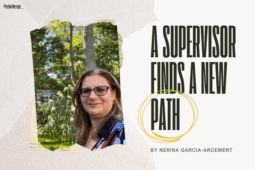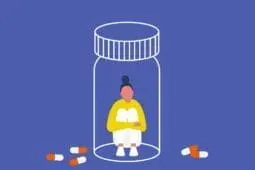Professional Development
Therapists Take the Stand
What You Need to Know about Being an Expert WitnessYou know your clinical expertise is of value to your clients, but it can also be important for judges and juries in court. Read more
Esther Perel on Working with Sexuality to Transform Relationships
And Busting Myths about Today’s RelationshipsObserve relationship expert Esther Perel in action as she helps couples navigate infidelity, incompatibility, and the impacts of childhood trauma. Read more
Terry Real on Achieving Breakthrough Results with Difficult Men
Transforming Behaviors by Facing Narcissists, Bullies, and Avoidants Head OnLearn how to work with narcissists, bullies, avoidants and other difficult male clients with leading expert Terry Real. Read more
So, You Want to be a Couples Therapist?
Getting Started in Couples CounselingAn experienced clinician shares how emerging therapists can get started in couples therapy. Read more
Janina Fisher on Treating the Parts of Attachment Trauma
Taking Apart Self-HatredJanina Fisher explores how to help your clients heal the parts of self-hatred and treat attachment trauma. Read more
Existentialism for a New Era
The Millennial Therapist on Self-CreationSara Kuburic, the Millennial Therapist, invites new clients to take a deep look at age-old existential concerns. Read more
Ready or Not, AI Is Here
What If Therapy Bots Become Too Good?A clinician on the precipice of launching his own AI therapy bot—HIPAA-compliant, infused with personal warmth, and based on thousands of hours of therapy... Read more
Saying Goodbye to Work You Love
How Do Therapists Know When It's Time to Retire?The uniqueness of a psychotherapist’s job can make it hard to let go of. Read more
Are ACEs as Determinative as We Think?
Two Trauma Experts on Connection, Community, and the Tyranny of DiagnosisTwo leading trauma experts discuss the power of enduring relational work and how our current medical model creates a moral injury for therapists. Read more
Can AI Make Us Better Therapists?
Using New Technology for SupervisionAI is already being used to create treatment plans, track client change, and detect empathy. How else could it help therapists? Read more
Supporting Our Dreams as Therapists
A Conversation with Shadeen Francis and Alexandra SolomonWatch Shadeen Francis and Alexandra Solomon discuss how clinicians can work together to achieve their professional development goals. Read more
Am I A Good Therapist Yet?
Reconciling Professional Ideals with RealityLofty visions of our capabilities as therapists can fuel us early in our careers, but at some point, we have to reckon with the reality that we can’t help... Read more
Action Man Meets Therapy Guy
Switching Careers in MidlifeWhen a journalist and rock climber decides to become a therapist, he embarks on a new understanding of himself. Read more
Editor's Note: November/December 2023
Practical Advice for New TherapistsA recent survey shows that fewer than half of people who graduate from therapy training programs ever make it to licensure. Why are so many emerging therapists... Read more
Love Letters to The Field
Supporting Our Big, Hairy, Audacious DreamsBy cultivating professional relationships across differences in ages and clinical experience, we keep each other’s big dreams alive, bridge knowledge gaps... Read more
Finding Your Way As a New Clinician
Three Tips to Guide Your First SessionAfter 34 years in practice, a therapist offers advice on what to remember before seeing your first client. Read more
Gifts of the Emerging Therapist
Tapping into the Power of Starting OutClinical experience is invaluable, but there are many unsung advantages to seeing therapists who are just starting out. Read more
The Long, Lonely Trek to Licensure
Is Becoming a Therapist Harder than Ever?Many beginning therapists are burning out and leaving the field before they’re able to gain their professional footing. How can we support them better? Read more
An out-of-the-box idea from two enterprising college students reignites the passion of a former supervisor. Read more
Imposter Syndrome: Working with Self-Doubt in Therapy
A Conversation with Jill StoddardWatch expert, Dr. Jill Stoddard, to discuss this extreme version of self-doubt with Director of Psychotherapy Networker, Zach Taylor. Here, she separates fact... Read more
One Foot In, One Foot Out
Enhance Clinical Effectiveness and Protect Against Compassion FatigueI've learned to not drown in my clients’ sorrow or hopelessness, but rather help them connect with their strengths and options to get the most out of our... Read more
An Emotionally Focused Path to Healing Trauma
Accessing the Resource of RelationshipsSue Johnson, developer of EFT, argues that because we’re socially bonded beings, trauma is always about relationships—and relationships are key to healing... Read more
Therapists Need Help Too
A Personal Story about the Importance of Self-CareWhy would a therapist need to see a therapist? Dr. JaQuinda Jackson discusses the reasons why mental health clinicians need professional help more than anyone... Read more
Sue Johnson and The Emotionally-Focused Individual
…And How She Stays Passionate about Helping OthersNetworker sits down with Sue Johnson to discuss her shift from couples to Emotionally-Focused Individual Therapy. Read more
Preparing for the End of Therapy
A Walk into the UnknownRegardless of your expertise or advanced degree, client terminations can derail you at any time. So why don't we do a better job of planning for them? Read more
'Being a Taxi Driver Taught Me Everything About Connection'
An Interview with Terry RealAs part of his Secrets of the Masters interview series, Rick Miller talks with Terry Real about his lengthy career in the mental health field and how it all... Read more
From EFT to EFIT: The Next Generation of Emotionally-Focused Therapy
A Conversation with Dr. Sue JohnsonJoin Dr. Sue Johnson, developer of Emotionally Focused-Individual Therapy (EFIT), along with Networker’s Anna Lock as they discuss everything EFIT. Read more
When Medication Gets in the Way
Listening, Collaborating, and Helping Clients “Choose Their Own Adventure”Five ways to talk to your clients about the pros and cons of meds—even if you’re not a psychiatrist. Read more
Therapist SOS (Strategies of Self-Care)
Demanding Days and Decompressing Head to ToeStaying fine-tuned to self-care through ongoing self-awareness and regular, mindful personal-battery recharging is imperative for clinicians. Read more
Reducing Client Dropout
What Makes a Difference?How to build a therapeutic relationship from the first session that keeps clients coming back. Read more






























